Scientist | Statistician | Bayesian | Author of brms | Member of the Stan and BayesFlow development teams
Website: https://paulbuerkner.com
Opinions are my own
Huge thanks to:
• My supervisors @paulbuerkner.com @stefanradev.bsky.social @avehtari.bsky.social 👥
• The committee @ststaab.bsky.social @mniepert.bsky.social 📝
• The institutions @ellis.eu @unistuttgart.bsky.social @aalto.fi 🏫
• My wonderful collaborators 🧡
#PhDone 🎓
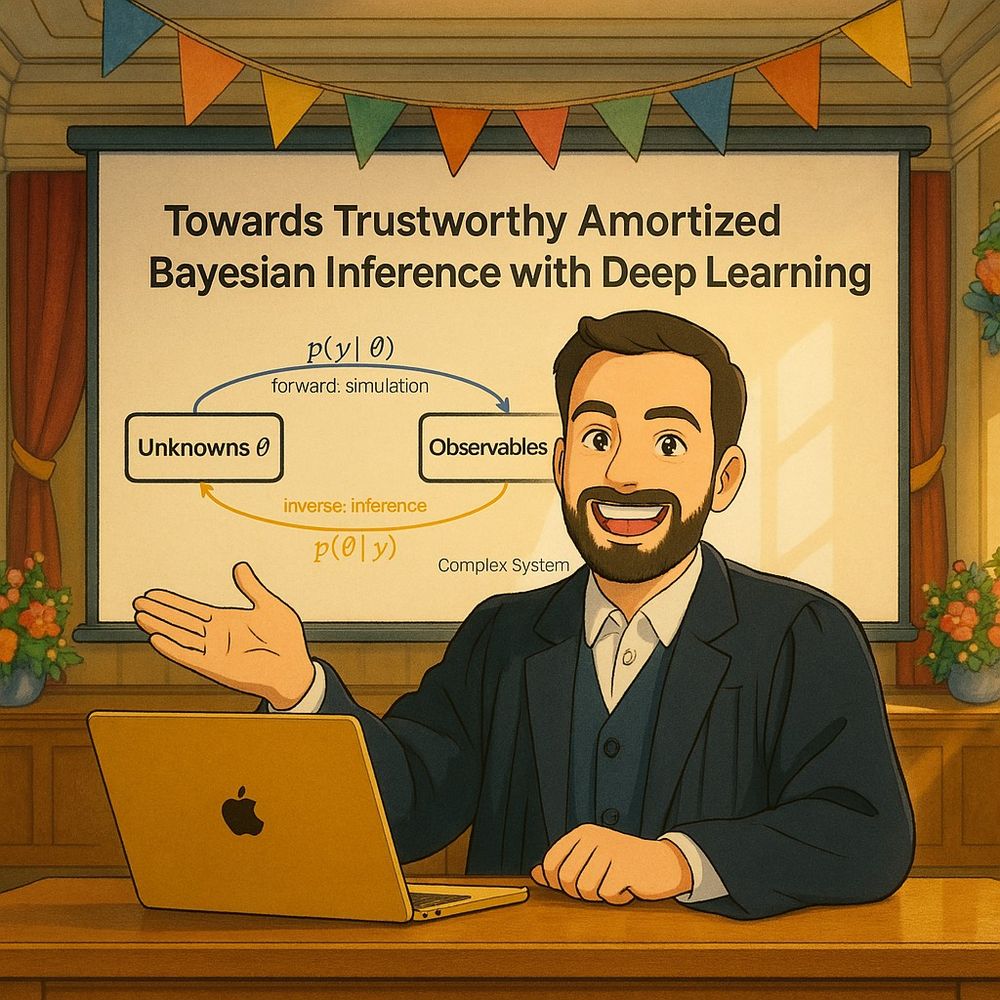
Huge thanks to:
• My supervisors @paulbuerkner.com @stefanradev.bsky.social @avehtari.bsky.social 👥
• The committee @ststaab.bsky.social @mniepert.bsky.social 📝
• The institutions @ellis.eu @unistuttgart.bsky.social @aalto.fi 🏫
• My wonderful collaborators 🧡
#PhDone 🎓
The amortized approximator from BayesFlow closely matches the results of expensive-but-trustworthy HMC with Stan.
Check out the preprint and code by @kucharssim.bsky.social and @paulbuerkner.com👇
The amortized approximator from BayesFlow closely matches the results of expensive-but-trustworthy HMC with Stan.
Check out the preprint and code by @kucharssim.bsky.social and @paulbuerkner.com👇
BayesFlow allows:
• Approximating the joint posterior of model parameters and mixture indicators
• Inferences for independent and dependent mixtures
• Amortization for fast and accurate estimation
📄 Preprint
💻 Code
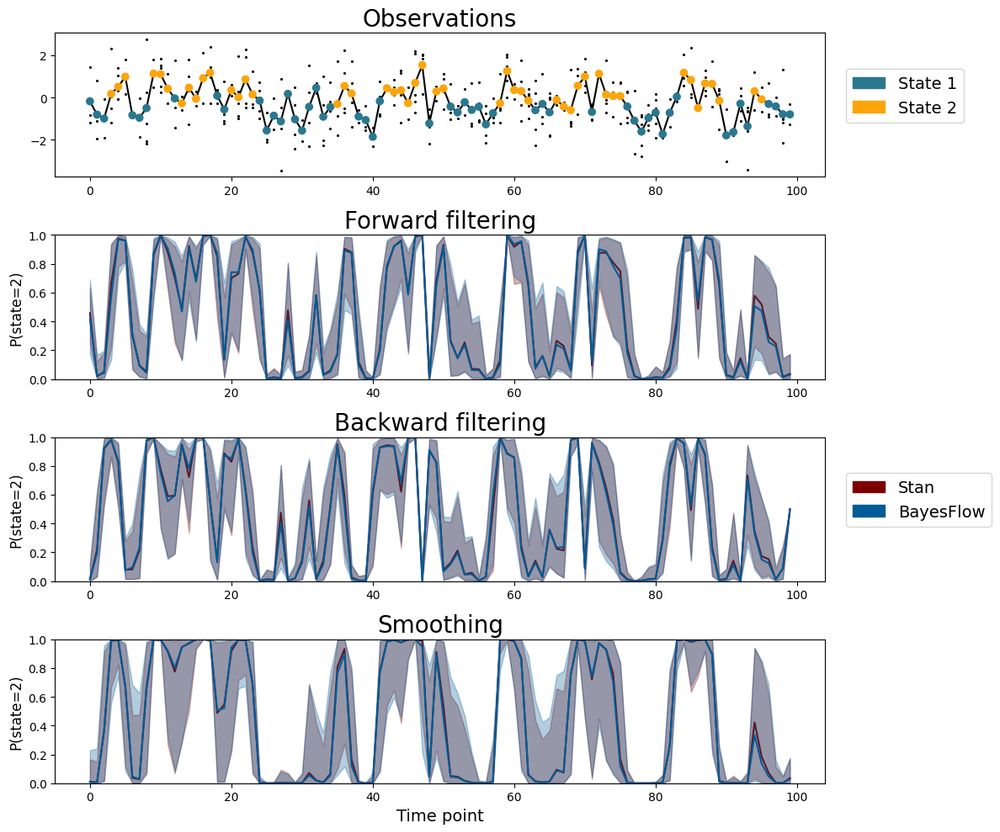
arxiv.org/abs/2502.03279 1/7
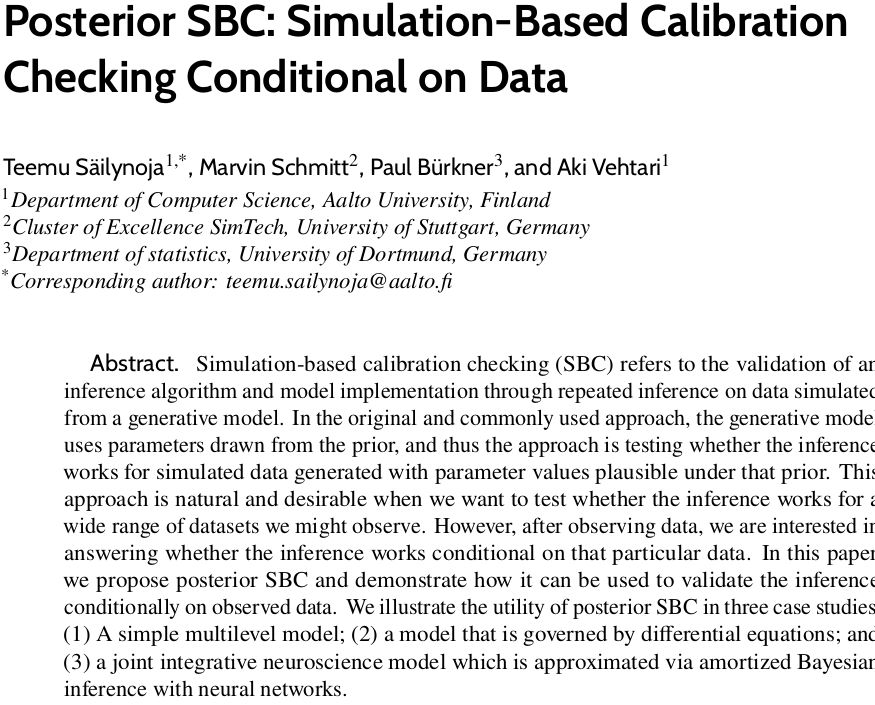
arxiv.org/abs/2502.03279 1/7
BayesFlow facilitated efficient inference for complex decision-making models, scaling Bayesian workflows to big data.
🔗Paper
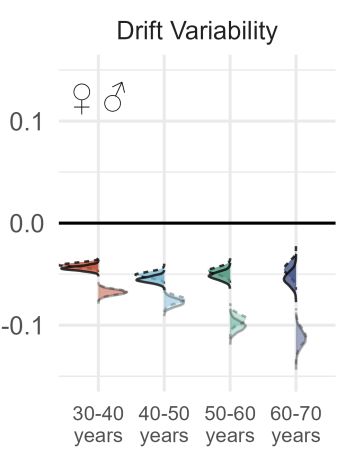
BayesFlow facilitated efficient inference for complex decision-making models, scaling Bayesian workflows to big data.
🔗Paper
Sign up to the seminar’s mailing list below to get the meeting link 👇
Sign up to the seminar’s mailing list below to get the meeting link 👇
Including my alma mater, the University of Münster.
HT @thereallorenzmeyer.bsky.social nachrichten.idw-online.de/2025/01/10/h...

Including my alma mater, the University of Münster.
HT @thereallorenzmeyer.bsky.social nachrichten.idw-online.de/2025/01/10/h...
- checking the long tails (few long RTs make the tail estimation unwieldy)
- low initial values for ndt
- careful prior checks
- pathfinder estimation of initial values
still with increasing data, chains get stuck
- checking the long tails (few long RTs make the tail estimation unwieldy)
- low initial values for ndt
- careful prior checks
- pathfinder estimation of initial values
still with increasing data, chains get stuck
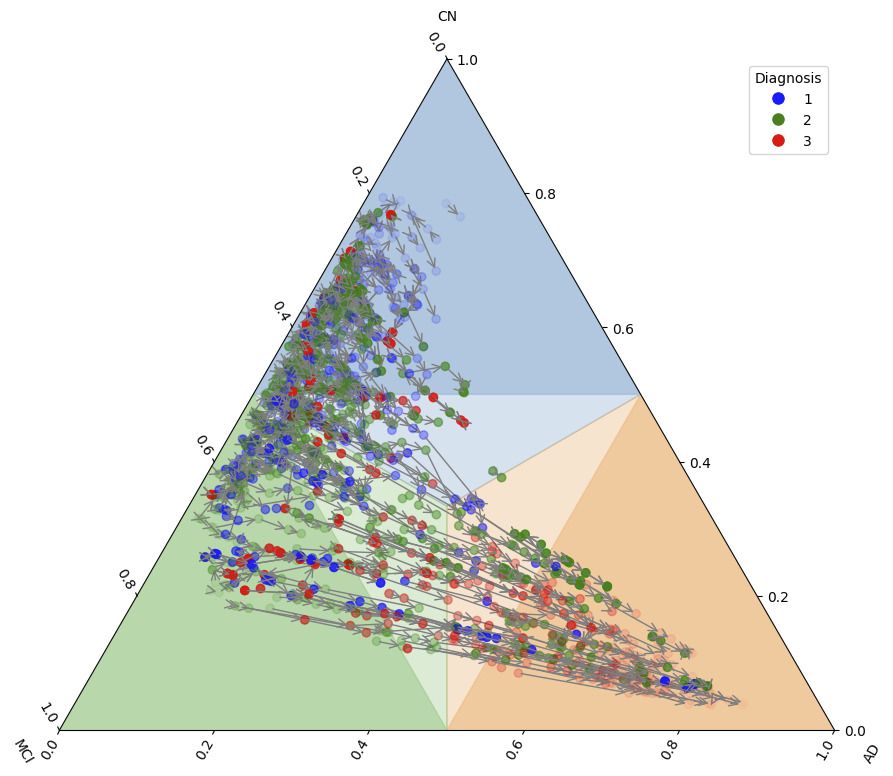
It’s not a part of the process that can be skipped; it’s the entire point.
It’s not a part of the process that can be skipped; it’s the entire point.
2️⃣ BayesFlow handles amortized parameter estimation in the SBI setting.
📣 Shoutout to @masonyoungblood.bsky.social & @sampassmore.bsky.social
📄 Preprint: osf.io/preprints/ps...
💻 Code: github.com/masonyoungbl...

2️⃣ BayesFlow handles amortized parameter estimation in the SBI setting.
📣 Shoutout to @masonyoungblood.bsky.social & @sampassmore.bsky.social
📄 Preprint: osf.io/preprints/ps...
💻 Code: github.com/masonyoungbl...
⋅ Joint estimation of stationary and time-varying parameters
⋅ Amortized parameter inference and model comparison
⋅ Multi-horizon predictions and leave-future-out CV
📄 Paper 1
📄 Paper 2
💻 BayesFlow Code

⋅ Joint estimation of stationary and time-varying parameters
⋅ Amortized parameter inference and model comparison
⋅ Multi-horizon predictions and leave-future-out CV
📄 Paper 1
📄 Paper 2
💻 BayesFlow Code
www.statnews.com/sponsor/2024...

www.statnews.com/sponsor/2024...
I definitely like where it's heading!
Personal highlights: data explorer, command palette, help on hover + extensions 👇🏻📚
I definitely like where it's heading!
Personal highlights: data explorer, command palette, help on hover + extensions 👇🏻📚
- adding lower/upper bounds to ordered vectors (removing positive ordered since it's achieved by lb=0)
Highlights:
New constraints for stochastic matrices and zero-sum vectors
Easier user-defined constraints
Improved diagnostics
New distribution, beta_negative_binomial

- adding lower/upper bounds to ordered vectors (removing positive ordered since it's achieved by lb=0)
In our new paper, we (Florence Bockting, @stefanradev.bsky.social and me) develop a method for expert prior elicitation using generative neural networks and simulation-based learning.
arxiv.org/abs/2411.15826

In our new paper, we (Florence Bockting, @stefanradev.bsky.social and me) develop a method for expert prior elicitation using generative neural networks and simulation-based learning.
arxiv.org/abs/2411.15826
Sensitivity-aware amortized inference explores the iceberg:
⋅ Test alternative priors, likelihoods, and data perturbations
⋅ Deep ensembles flag misspecification issues
⋅ No model refits required during inference
🔗 openreview.net/forum?id=Kxt...
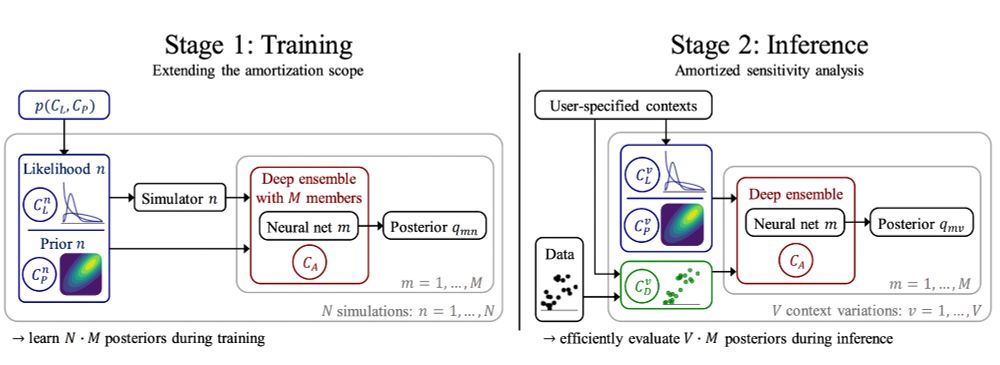
Sensitivity-aware amortized inference explores the iceberg:
⋅ Test alternative priors, likelihoods, and data perturbations
⋅ Deep ensembles flag misspecification issues
⋅ No model refits required during inference
🔗 openreview.net/forum?id=Kxt...
How it works: Write in markdown and use Quarto to convert it to html, pdf, epub, ...
I produce my books with Quarto (web + ebook + print version). But you can also use it for websites, reports, dashboards, ...
quarto.org

How it works: Write in markdown and use Quarto to convert it to html, pdf, epub, ...
I produce my books with Quarto (web + ebook + print version). But you can also use it for websites, reports, dashboards, ...
quarto.org
Pessimist: The cup is half empty
Frequentist: *takes a deep breath* The probability that the cup is half full given the observed volume of water (or more extreme volumes) is larger than 5% so I cannot reject the null hypothesis that the cup is half full.
Pessimist: The cup is half empty
Bayesian:
Pessimist: The cup is half empty
Frequentist: *takes a deep breath* The probability that the cup is half full given the observed volume of water (or more extreme volumes) is larger than 5% so I cannot reject the null hypothesis that the cup is half full.
Pessimist: the cup is half empty
Comparative cognition researcher: I wonder if this animal will drop some stones into this cup
Pessimist: the cup is half empty
Developmentalist: even when I demonstrate that the taller cup holds the same amount of water as the wider cup, this kid thinks the tall one has more
Pessimist: the cup is half empty
Linguist: quantities are described with regard to a reference state; thus we can efficiently convey whether the cup was more recently full or empty
Pessimist: the cup is half empty
Comparative cognition researcher: I wonder if this animal will drop some stones into this cup

